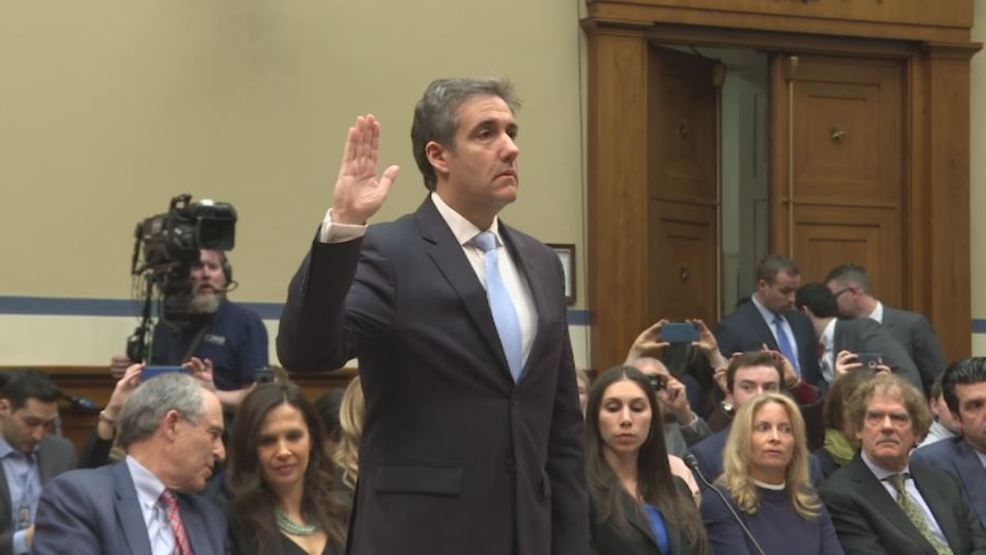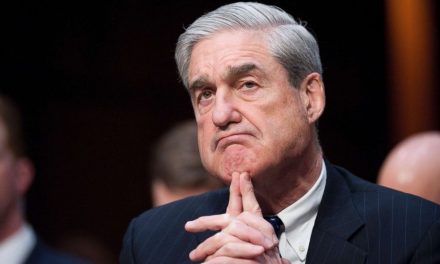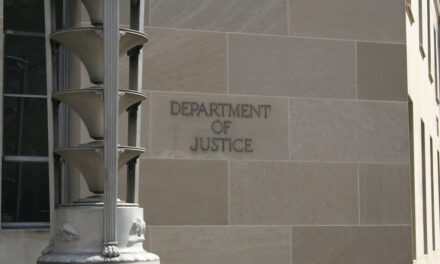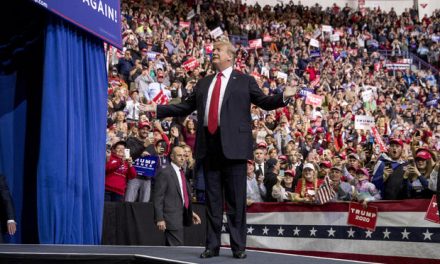I’m going to try to put some things in their proper perspective. Back on November 24, 2015, I wrote a rebuttal to Nate Silver who was then giving Donald Trump only a twenty percent chance of winning the Republican nomination for the presidency. I concluded that piece by saying “I think the situation absolutely warrants a good long panic attack.” But Silver’s analysis in that window of time was only mildly contrarian. It was pushback against what he saw as unwarranted concern that Trump’s strong polling numbers might be sustainable. But most people were still in a stage of disbelief. The polls said that Trump was the frontrunner, but few people could envision or even accept that Republican voters would actually stick with him when they started playing closer attention.
I’m not sure when Donald Trump and the people close to him started to believe themselves that they actually had a shot at winning the nomination, but the thought must have begun to occur to them as fall turned to winter in 2015. Actually winning was probably not part of the original plan. However, getting a Trump Tower build in Moscow definitely was. That’s been clear for a while now, but BuzzFeed lays it all out for you in a new piece written by Anthony Cormier and Jason Leopold. The two men who were doing the legwork on getting a tower built were childhood friends Michael Cohen and Felix Sater. To get an idea of how Sater viewed Trump’s presidential run, let’s look at the following excerpt:
After Trump announced his candidacy in July 2015, Sater saw the opportunity of a lifetime: Why not parlay the presidential run into a business deal?
“I figured, he’s in the news, his name is generating a lot of good press,” Sater told BuzzFeed News. “A lot of Russians weren’t willing to pay a premium licensing fee to put Donald’s name on their building. Now maybe they would be.”
Simply by announcing his candidacy for president and getting a lot of news coverage, Trump was upping his chances of making licensing deals. There was a limited window on how long this opportunity would last, so there was a certain urgency to cashing in while the irons were hot. Cohen and Sater certainly acted like they needed to move with haste, and they kept Trump apprised of their progress throughout. In October, they seemed to have things secured:
The licensing agreement came together relatively quickly. Sater turned to a wealthy Moscow developer he knew from the days when Ivanka spun around in Putin’s chair: Andrey Rozov. His company, IC Expert, became the developer, and the sides traded proposals. At one point, as the letter of intent was passed back and forth during the negotiations, the Trump Organization changed an upfront fee from $100,000 to $900,000. On Oct. 28, 2015, the day of the third Republican presidential debate, Trump personally signed the letter of intent.
In a celebratory email sent from his Trump Organization account, Cohen asked Sater and Rozov that the “nature and content of the attached LOI not be disclosed” until later and said “we are truly looking forward to this wonderful opportunity.”
This is very significant. On October 28, 2015, Donald J. Trump Sr. signed on the dotted line a letter of intent to build a tower in Moscow. They immediately decided that this agreement should be kept secret. Had the public known about the project, they would have had a much different impression of Trump’s commentary on Vladimir Putin.
Trump spent the summer and fall of 2015 telling anyone who would listen that he had a great relationship with Vladimir Putin and that he was a great leader. He repeatedly suggested that he’d get along with Putin much better than President Obama had been able to and that this would be a positive for the country. Typical of this time period was an appearance Trump made on Bill O’Reilly’s show on September 29th where he said “I will tell you that I think in terms of leadership, [Putin] is getting an ‘A,’ and our president is not doing so well.”
“Putin is now taking over what we started and he’s going into Syria, and he frankly wants to fight ISIS, and I think that’s a wonderful thing,” Trump told Fox News Tuesday, after ending his boycott against the network. “If he wants to fight ISIS, let him fight ISIS. Why do we always have to do everything?”
What people didn’t know was that in this exact period of time, he had Cohen and Sater hammering out the details on a licensing agreement for this:
The tower — a sheer, glass-encased obelisk situated on a river — would have soared above every other building in Moscow, the architectural drawings show. And the sharply angled skyscraper would have climaxed in a diamond-shaped pinnacle emblazoned with the word “Trump,” putting his name atop the continent’s tallest structure.
As Putin ramped up Russia’s military commitment in Syria in an effort to bolster the regime of Bashir al-Assad, Trump kept approving of the move and suggesting his real motive was to attack ISIS, a sworn enemy of Assad. Here’s what he told the Guardian two weeks before his signed the letter of intent on a Moscow Tower:
“[Putin]’s going to want to bomb ISIS [in Syria] because he doesn’t want ISIS going into Russia and so he’s going to want to bomb ISIS. Vladimir Putin is going to want to really go after ISIS, and if he doesn’t it’ll be a big shock to everybody.”
From the outside, Trump’s behavior was bizarre and hard to understand. Being so friendly to Vladimir Putin didn’t seem consistent with U.S. foreign policy objectives and it certainly didn’t look like a coherent political strategy. Phillip Bump of the Washington Post noted this in December:
…Putin’s poll numbers among Americans are terrible. Globally, Russia is viewed very negatively, according to Pew Research, with two-thirds of Americans holding an unfavorable view of the country. Three-quarters of Americans have no confidence in Putin to do the right thing — which presumably includes offering political endorsements.
If Trump didn’t care about U.S. interests and his actions and words made no sense politically, why was he acting this way?
If people were suspicious before, their concerns were amped up to eleven by statements Trump made on December 18th and December 20th. Appearing on Morning Joe on the 18th, Trump made news when he dismissed host Joe Scarborough’s observation that Putin kills journalists who don’t agree with him by saying, “Well, I think that our country does plenty of killing, too, Joe.” He followed that up on December 20th by telling George Stephanopolous that there was no proof that Putin had killed anyone:
“…in all fairness to Putin, you’re saying he killed people. I haven’t’ seen that. I don’t know that he has. Have you been able to prove that? Do you know the names of the reporters that he’s killed? Because I’ve been — you know, you’ve been hearing this, but I haven’t seen the name. Now, I think it would be despicable if that took place, but I haven’t’ seen any evidence that he killed anybody in terms of reporters.”
There was a lot of outrage on both points. That Trump would deny that Putin kills journalists was curious and offensive, but that he’d assert that even if it were true it was no worse than what America does was seen as delusional and unpatriotic.
At that point, I think a lot of people began to serious question whether Trump had some financial ties or interests in Russia that explained his behavior. And, of course, that’s exactly what was going on. Glenn Simpson of Fusion GPS was hired in September or October 2015 by the Washington Free Beacon to look into Trump’s business practices and he testified to the House Intelligence Committee that one of the very first things he looked into was Felix Sater’s relationship to Donald Trump. That was certainly prescient considering what Sater was doing at that exact moment in time. He also testified that he quickly noticed that Trump had made a number of trips to Russia but had never actually consummated a deal. He obviously didn’t know that that same month Trump signed a letter of intent to build a Moscow project. Simpson hired Christopher Steele in this time period precisely because he wanted to understand why Trump had so many connections to Russia and why he was saying “weird things about Putin” but didn’t appear to have any actual business interests there.
As Trump’s campaign for the Republican nomination became more plausible, the interest in striking a Moscow tower deal seemed to recede a bit, at least for a time. People were asking a lot of questions and news of a deal would have blown up into a political scandal. Yet, in spite of this, Cohen and Sater resumed their efforts in the spring and didn’t really give up until the day Trump tweeted this out:
For the record, I have ZERO investments in Russia.
— Donald J. Trump (@realDonaldTrump) July 26, 2016
That was true only in the narrowest sense of the word. But it was enough for Felix Sater to know that his efforts had come to nothing.
Sater kept holding out hope — working his sources in Russia right through the convention — until July 26, 2016, when Sater, while relaxing in the backyard of his Long Island home, read a tweet by Trump and knew right then that the deal was dead.
“‘Fuck me,’ I thought to myself. All that work for nothing,’” Sater told BuzzFeed News.
He poured himself a big glass of scotch, he recalled, and lit a cigar.
I don’t know about you, but for me the degree to which Trump concealed and lied about this information is impeachable on its own before we even get to possible coordination in the general election. Trump’s primary interest in running for president was not originally to actually win either the nomination or the presidency. He spent his campaign basically auditioning for Vladimir Putin in the hope that he’d be able to put his name on the tallest tower in Europe.
And he did not tell the truth about this and still hasn’t.






